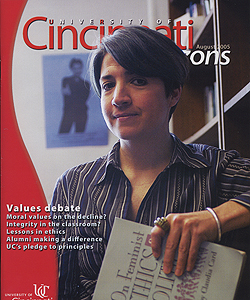by George Bishop
(Excerpted from a January '05 article in Public Opinion Pros, an online periodical for polling professionals)
Exit polls do an outstanding job in helping project the outcome of an election. But when respondents tell us that an issue mattered the most in deciding how to vote, they are not giving causal reasons. Instead, they are merely selecting plausible reasons, justifications or after-the-fact rationalizations for their behavior.
It may make for a good story line for journalists and pundits to proclaim what was the defining issue of the 2004 presidential election, but it makes for lousy political science. A lot of exit poll respondents picked one issue that mattered most in deciding how they voted for president, but such an explanation is misleading because any broad issue is an ambiguous catch-all that could mean different things to different people.
Voters were subject to numerous influences on their voting preferences, all of which will take months and probably years for analysts to sort out. The truth is we really don't know yet why George Bush won this election. We have but a few clues as to how it happened.
The danger is that both parties will now misinterpret the meaning of this election based on premature readings of polls, seeing mandates and messages where none exist. Caveat emptor! The analysis of the data has only just begun.
George Bishop is professor of political science, director of the University of Cincinnati Graduate Certificate Program in Public Opinion and Survey Research, and author of the recently published book "The Illusion of Public Opinion: Fact and Artifact in American Public Opinion Polls."
Related articles:
Alternative spring breaks build character

 Past Issues
Past Issues